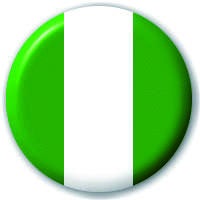
Nigeria’s life insurance market, is projected to more than double from NGN86.3bn in 2014 to NGN195bn in 2019, in terms of gross written premium, according to research available at Timetric’s Insurance Intelligence Center (IIC).
The Timetric report, The Insurance Industry in Nigeria, Key Trends and Opportunities to 2019, says the Nigerian life insurance market’s gross written premium more than doubled from NGN42.1bn in 2010 to NGN86.3bn (US$522.9 million) in 2014.
Stable economic and population growth supplemented the segment’s rise during 2010-2014. Furthermore, with 70.6% of Nigeria’s population having mobile phone access, the IIC report says the development of insurance distribution through the mobile phone channel is expected to increase the life segment’ penetration rate over 2014-2019.
Non-life insurance accounted for 58.5% of the industry’s direct written premium in 2014, followed by the life segment with 28.1% and personal accident and health insurance with 13.4%.
The non-life segment’s share is anticipated to decrease between 2014 and 2019 whereas the life segment’s share is expected to grow to 33.8% and the personal accident and health segment’s share is expected to decline to 13.2% in 2019.
Distribution channel outlook
How well do you really know your competitors?
Access the most comprehensive Company Profiles on the market, powered by GlobalData. Save hours of research. Gain competitive edge.

Thank you!
Your download email will arrive shortly
Not ready to buy yet? Download a free sample
We are confident about the unique quality of our Company Profiles. However, we want you to make the most beneficial decision for your business, so we offer a free sample that you can download by submitting the below form
By GlobalDataInsurers in Nigeria primarily distribute products through agents and brokers. As of 2015, the insurance industry had 2,453 registered agents and 421 brokers.
Competitive landscape
Timetric’s IIC report says Nigeria’s insurance industry had 15 life insurers, 29 general insurers and 14 composite insurers in 2014.
The country’s leading insurers include Leadway Assurance Company; AIICO Insurance; Custodian and Allied; Axa Mansard Insurance; and Niger Insurance.
Growth potential
In late October 2015, Fitch Ratings said it believes the insurance industry in Nigeria will expand slowly but surely.
Fitch said: “Favourable factors supporting the long-term development of the industry include strong economic growth potential, good demographic fundamentals, investor interest and low insurance penetration. These factors are offset by recent economic headwinds and significant structural challenges.”
The ratings agency added that recent naira weakness may present an opportunity for foreign investors by providing an affordable entry point, and the difficult operating environment may incentivise small, undercapitalised insurers to consider a sale.
According to Fitch, profit margins remain favourable in the Nigerian insurance sector, despite high expense ratios in the Nigerian insurance industry. It said insurers that succeed in reducing costs could rapidly gain market share by passing on most of the benefits to consumers. This process may be fuelled by more sophisticated customers, as insurance awareness and education improve.
Fitch believes that both corporate governance and transparency in Nigeria’s insurance sector are improving, albeit off a low base. These improvements have been supported by the introduction of compliance with IFRS reporting requirements in 2013, and the industry has made good progress on timely submission of financial statements.
The National Insurance Commission (NAICOM) has also taken steps to improve trust in the insurance sector. Most recently, Fitch notes has set a deadline for insurers to clear their backlog of outstanding claims. The regulator’s successful implementation of “no premium, no cover” requirements has added further credibility to the sector.
The Nigerian insurance outlook from Fitch comes as Prudential Financial and LeapFrog Investments recently launched a $350m investment partnership to access high-growth markets in Africa.
Managed by LeapFrog, the new investment vehicle will target investments in life insurance companies in leading economies on the continent, including Ghana, Kenya and Nigeria, to be made over a three- to five-year period.
Charles Lowrey, executive vice president and chief operating officer of Prudential’s International Businesses, said “This investment expands Prudential’s footprint into Africa, a continent that we believe offers tremendous potential for growth over the long term. We are delighted to partner with LeapFrog Investments, given their deep experience in Africa, and their impressive record of success as insurance investors focused on emerging consumers.”
Industry view
Jake Longworth, associate manager at Eos Group , a UK-based, global corporate security risk and crisis management business, tells Life Insurance International (LII) Nigeria is one of Sub-Saharan Africa’s largest untapped insurance markets for both life and non-life insurance products.
From a security perspective, Longworth says the country remains unstable, despite a peaceful democratic election and transfer of power in March 2015.
Longworth says: “Islamic State-affiliated terrorist organisation Boko Haram continues to wage an effective insurgency in Nigeria’s northern states and on the borders of neighbouring Niger, Chad and Cameroon. The group poses a significant threat to Nigeria’s stability, using suicide bombings, kidnappings, executions, massacres and attacks on security forces to undermine the Nigerian state.”
In Nigeria’s oil rich south, Longworth says the risk of a renewed insurgency by Niger Delta militant groups has also become very real.
He adds that the country ranks 169 out of 189 in the 2015 World Bank Ease of Doing Business rankings and 136 out of 167 on the Transparency International Corruption Perceptions rankings, largely as a result of significant bureaucracy and corruption.






